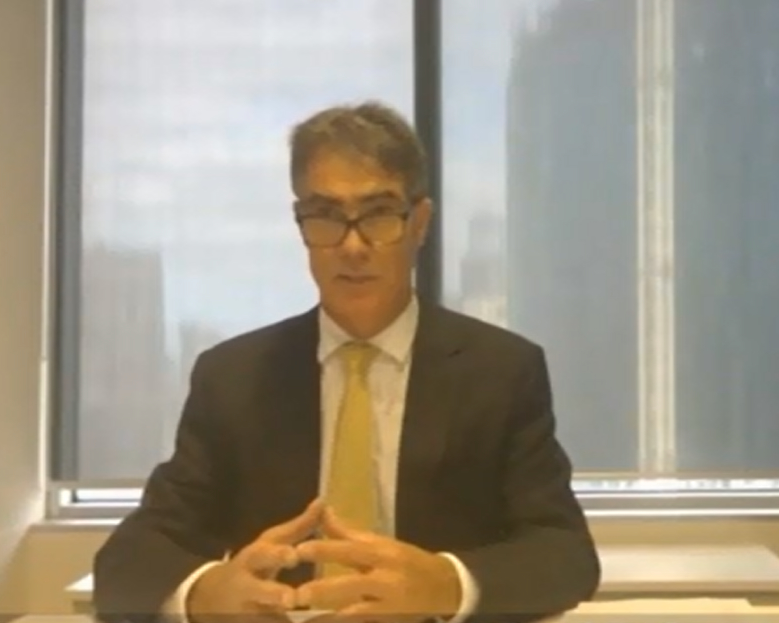
Jamie McPhee, ME CEO
A showdown looms this morning between ME Bank’s board and irate shareholders seeking accountability for the ruinous decision to slash redraw entitlements of thousands of its mortgage borrowers.
ME’s board is due to meet for the first time since the bank’s reputation was savaged in the first week of May by customers affected by the unpopular redraw move.
While the bank reversed the decision on 8 May, a group of around 20 industry funds who collectively hold a 20 per cent interest in the bank are concerned that the board has not made itself accountable for the debacle.
The alliance of smaller industry funds, which includes Maritime Super, Care Super and First Super, participated in a Zoom conference on Wednesday afternoon with a view to recommending a course of action to directors at the board meeting.
On Monday some of the shareholders were advancing the case for removing the bank’s chairman Jim Evans on the grounds that the errant redraw decision was made by the board.
Those shareholders believe that directors settled on the measure despite resistance from chief executive Jamie McPhee who warned the board that curtailing redraw entitlements of borrowers could prove a franchise destroying move.
High-impact negotiation
masterclass
July 9 & 16, 2025
5:00pm - 8:30pm
This high-impact negotiation masterclass teaches practical strategies to help you succeed in challenging negotiations.
In evidence given to a special hearing of the House Economics Committee on Wednesday, McPhee confirmed that the decision to slash the redraw capacity of 21,790 borrowers was taken by a sub-committee of the board.
“The subcommittee made the decision to conduct the actions we took,” the ME chief told the parliamentary hearing.
“That decision was made…and people aligned behind that decision.”
Shareholders told Banking Day they were “dismayed and stunned” that Evans had neither commented publicly on the fiasco nor called a special board meeting at the height of the crisis.
Evans’ silence is even more remarkable given that ME Bank is facing the possibility of enforcement action as a result of the fiasco.
ASIC commissioner Sean Hughes told the parliamentary committee the conduct regulator was investigating matters in relation to ME’s redraw decision.
Hughes, who worked previously as a chief risk officer for the Unisuper industry fund, declined to answer a question from the deputy chair of the committee, Labor’s Andrew Leigh, on whether the bank had committed legal breaches.
“I’m not in a position to answer that Mr Leigh because our inquiry is ongoing,” Hughes told the hearing.
In his opening statement to the committee, Hughes revealed that ASIC had received three complaints about the redraw issue that were “currently being assessed”.
“ASIC does have concerns about how this matter has been handled,” Hughes told the committee.
“ASIC will continue to closely monitor ME Bank’s conduct and engage with the bank on this issue, so as to ensure a fair and transparent outcome for ME Bank customers.
“This has been a disappointing experience for ME Bank and has had an avoidable impact on customer confidence.”
Committee chairman Tim Wilson questioned McPhee on a wide range of issues during the hearing that went beyond the redraw saga.
Wilson even asked McPhee to identify consultants used by the bank for hiring new executives.
He also asked the ME chief whether he knew anything about attempts by the bank’s shareholders to sell the business as far back as 2008.
McPhee, who was appointed CEO in 2010, appeared to be unaware of a report prepared for the bank’s board during the GFC by LEK Consulting about strategic options for selling the business.
Banking Day is aware that ME Bank held informal talks with Bendigo Bank about a potential merger during the global financial crisis.
The talks were abandoned after the Rudd Government introduced a guarantee on bank deposits and funding support for lenders.